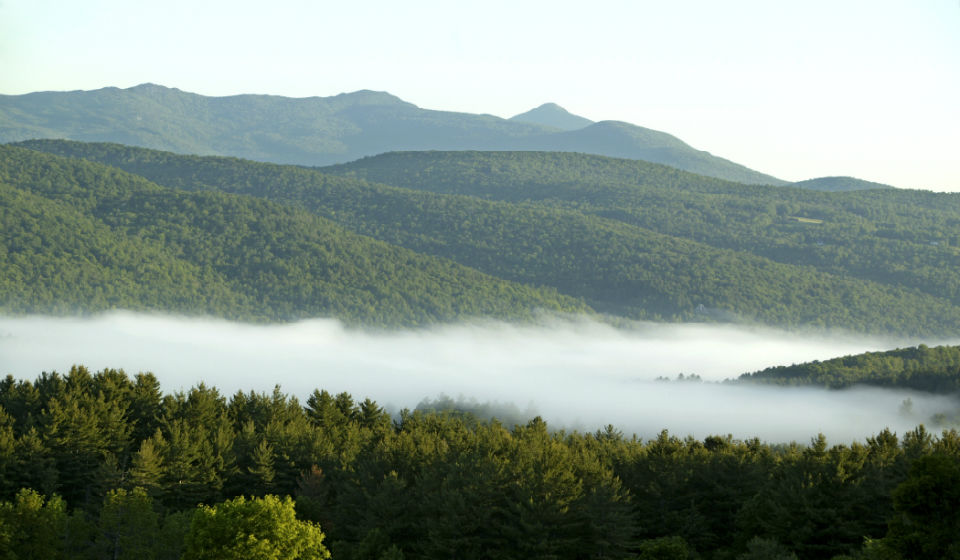Qualifications for Foresters
In 2009, the Consulting Foresters Association of Vermont merged with Vermont Woodlands. At that time we adopted the membership qualifications and dues structure of CFAV and have not changed, except as required with forester licensing. If you write UVA or equivalent management plans, mark timber and manage sales, impart your knowledge in written or public forums, and have good references we’d love to have you as a member.
To be accepted as a Vermont Woodlands consulting forester, you must:
- Be licensed in the State of Vermont to practice Forestry
- Adhere to the Administrative Rules for Foresters Standards of Conduct (section 6-5)
- Operate as or be employed by a consulting forester, working for private landowners.
If you are interested in becoming a Vermont Woodlands licensed consulting forester, fill out the application and submit via email to the Executive Director or mail.
The minimum skill and work experience standards are:
- Preparation of five Forest Management Plans that have met Vermont Use Value Appraisal standards within the last 2 calendar years from the application date.
- Administration of three forest product sales in the last 2 years from the application date that generate $1000.00 in stumpage for a Vermont landowner with references from those landowners. The landowner cannot be themselves, their employer, or an entity they are a part of (e.g. Trust or LLC).
- Promotion of sound forest management by presentation of at least three public communications within the last 3 years.
What does it mean to be in good standing? Your are considered in good standing if you maintain your Vermont Forester License and pay your membership dues on time. If you fail to comply with either requirement then the Executive Board will notify you in writing that you are in poor standing. You will have 12 months from the date of the letter to be reinstated as a member in good standing.
Licensed Consulting Forester Application
The process is fairly simple. Fill out the Licensed Consulting Forester application and submit it to the Vermont Woodlands Executive Director online or via mail. The application will be reviewed by the VWA Executive Director and LCF Board Liaison, Allan Thompson to determine eligibility. We will check with your references so it’s a good idea to let them know that you’ve used their name.
Your application is reviewed by the Executive Director and forester liaison to the board
Per our 2009 agreement with CFAV, there are at least three consulting foresters on the board of directors. Your board representatives, in addition to Allan Thompson, are John McClain, Luke Hardt, and Steve Handfield. If you ever have any questions, please contact one of your board representatives or the executive director.
Technical Service Providers
Technical service providers (TSPs) offer services to agricultural producers such as farmers, ranchers, and private forest landowners on behalf of the Natural Resources Conservation Service (NRCS). TSPs help these producers plan, design, and implement conservation practices or develop conservation activity plans to improve agricultural operations.
TSPs can help producers address natural resource concerns in diverse areas, including nutrient management, energy use, forestry, grazing, irrigation, organic agriculture and wildlife habitat. They also provide conservation planning services such as the development of conservation activity plans.
They can also plan, design, and help producers implement conservation practices that meet NRCS standards and specifications for conservation activities. TSPs work on behalf of NRCS, so they maintain the confidentiality of the agricultural producers they help. In addition, TSPs can help farmers, ranchers, and forest landowners comply with federal, state, tribal, and local laws and regulations.
TSP conservation work falls into two broad categories:
- conservation practice planning, design and implementation
- conservation activity plan development
Farmers, ranchers and forest landowners can use conservation activity plans to address specific natural resource objectives such as nutrient and pest management, forestry, energy conservation, or transitioning to organic agriculture.
If approved for an EQIP contract that includes TSP services, the participant chooses a TSP from an NRCS-approved list and negotiates payment for the selected TSP’s services. Once technical services are completed, the TSP provides documentation and an invoice to the participant who then provides the documentation or notification of completion invoice to NRCS for certification and reimbursement.
NRCS reimburses the producer at a contracted rate established by the program. The maximum rates for technical services are listed on the TSP website, TechReg or are available in the 2021 State Payment Schedule.
The TSP certification process includes required training and verification of education, knowledge, skills and abilities.
Apply for TSP registration or certification on the TechReg website, NRCS’s online TSP registry. TechReg provides information to individuals, private businesses, American Indian tribes, nonprofit organizations, and public agencies on how to become a TSP or agricultural producers and private forest landowners can find a TSP in TechReg.
- New and certified TSPs can Log into TechReg
- Landowners looking for assistance can Find a TSP
- Individuals and businesses can Become a TSP
Participants in NRCS’s Environmental Quality Incentives Program (EQIP) may be eligible to receive financial assistance to work with TSPs to develop conservation activity plans or plan, design and implement certain conservation practices. Only TSPs can develop conservation activity plans. If you work with landowners who take advantage of NRCS Environmental Quality Incentive Program (EQIP) cost share funds you will either need to be a TSP or have a TSP sign off on plans.


